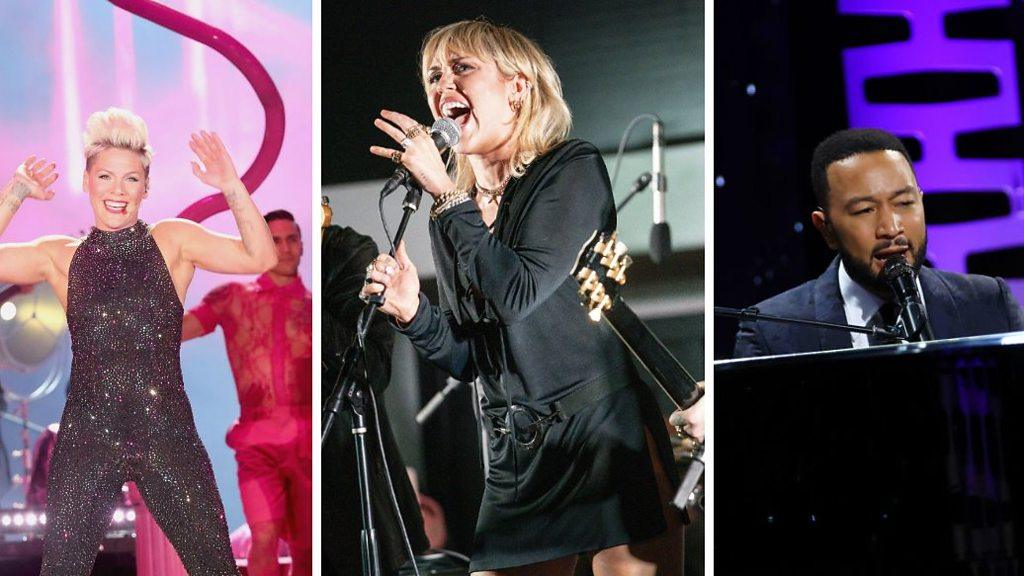Demi Lovato: The singer says they're non-binary
- Published
- comments
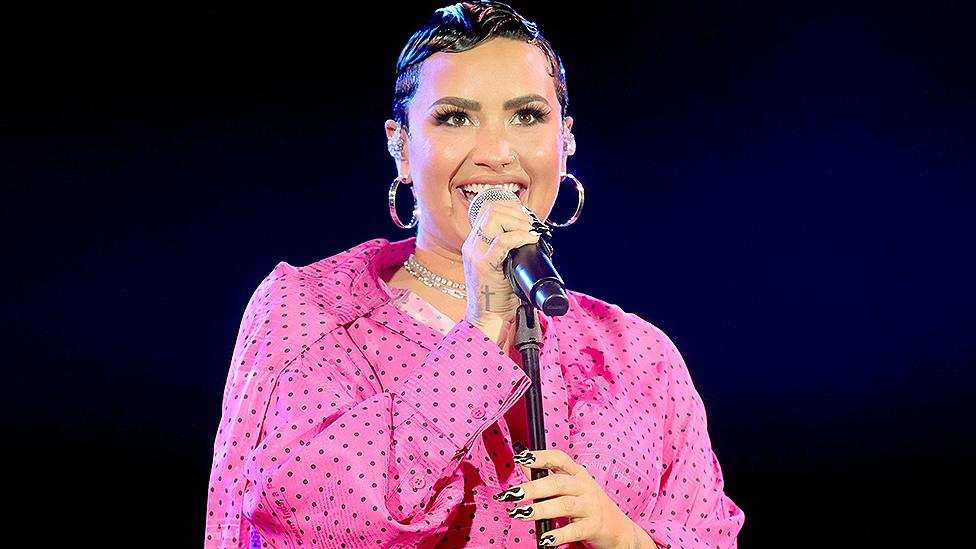
Singer Demi Lovato has announced on social media that they are non-binary.
This means a person doesn't see themselves as either a male or a female and they ask that people don't use the gender identity words 'she' or 'her' when describing them.
In a post online Demi said: "I am proud to let you know that I identify as non-binary and will officially be changing my pronouns to they/them moving forward."
Demi said they came to understand their gender identity after spending time doing "healing and self-reflective work" over the past year.
Being non-binary means you don't see yourself as fitting into the category of being a man or a woman.
Physically you might have all of the male or female characteristics but being non-binary is more to do with your gender.
People who are non-binary ask other people to use the non-gender identity pronouns 'they' and 'them' when describing them.
Non-binary people are part of the LGBTQ+ community.
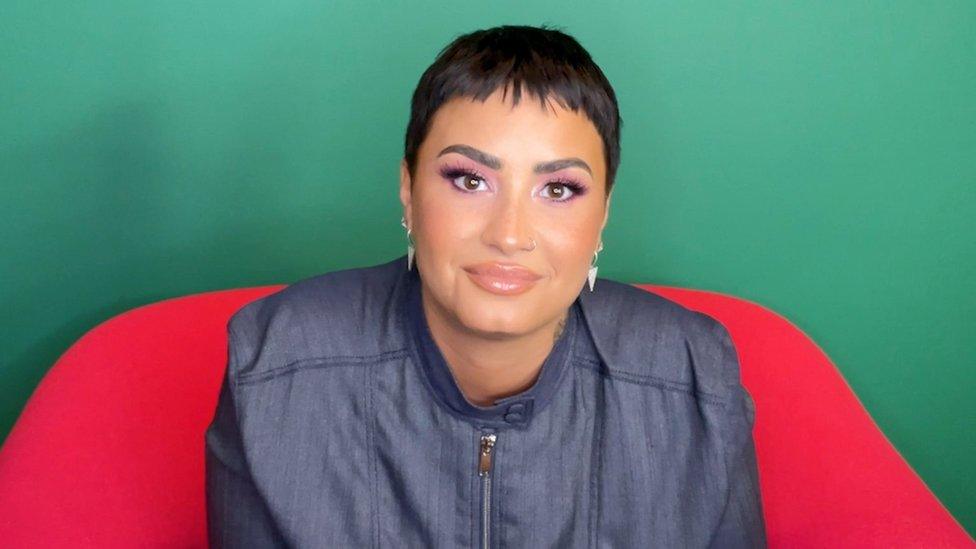
Demi is a multi-award-winning singer and activist, who has starred in the Camp Rock Disney films alongside the Jonas brothers, and was the main character in Sonny With as Chance
Demi said that they were not an "expert or spokesperson" on being non-binary, and that they would speak to other non-binary people in a video series about gender identity.
"I'm doing this for those out there that haven't been able to share who they truly are with their loved ones," they added.
"Please keep living in your truths and know I am sending so much love your way."
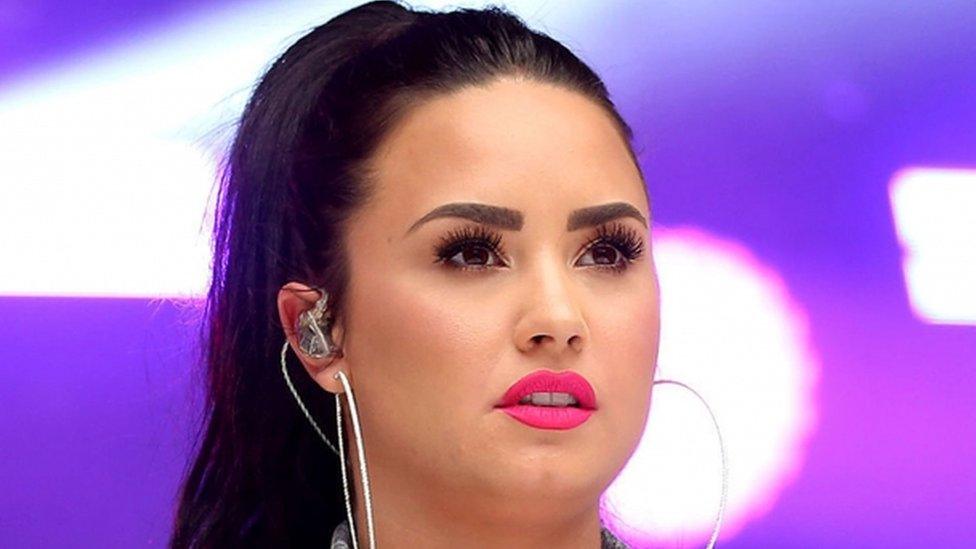
In the first episode of Demi's new podcast series, they spoke about clothing and gender: "There might be a time where I wanna wear a full wig, there might be a time where I want to dress completely femme presenting.
"That doesn't mean that in that moment, I'm identifying as a woman, it just means that's what I want to wear in that moment. I want people to understand that just because I'm non-binary, doesn't mean I'm not going to dress the way I want."
Pronouns are short words like, 'it', 'she', 'he', 'you', 'we', 'they', 'us' and 'them'. They are used to describe either an individual or groups of people, rather than using their name or names.
Demi also talked about the importance of pronouns to them and said: "To me it would mean the world if people could start identifying me as they/them. I will also be accepting if people slip and say her/she, because I know being in my position, it's going to take a while for people to get used to. I just want them to be making the effort.
"I think it's important because I want to use these pronouns to feel right to me; I also just don't want people to be so afraid of messing up that they don't try to use them."
Demi has been a supporter of LGBT rights throughout their career and in 2017 they wrote a letter to the LGBTQ+ community for Billboard magazine, as part of its Pride Month coverage.
"I struggle with wrapping my head around the fact that we live in a world where love and equal rights still have to be questioned or discounted," they wrote.
- Published10 June 2022
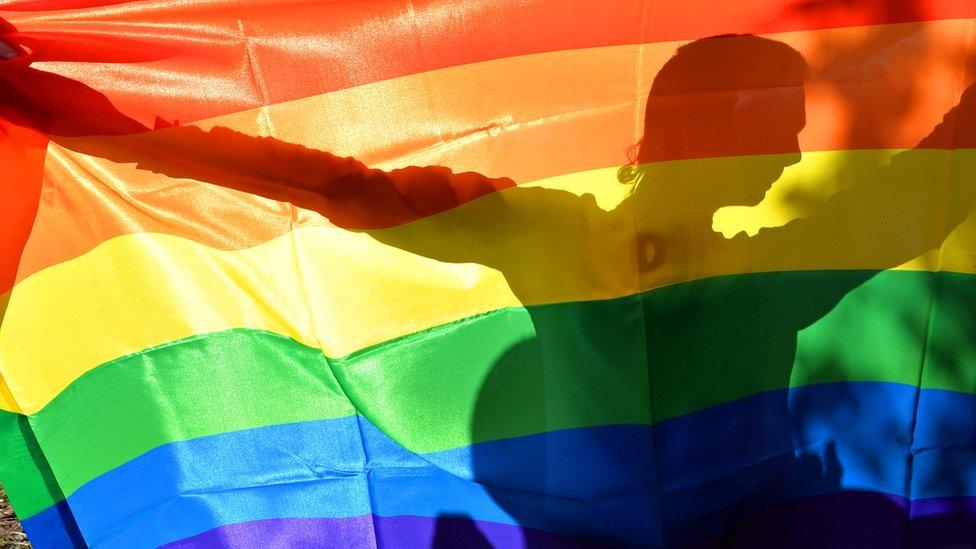
- Published14 September 2019

- Published6 May 2021

- Published6 August 2018

- Published6 June 2021
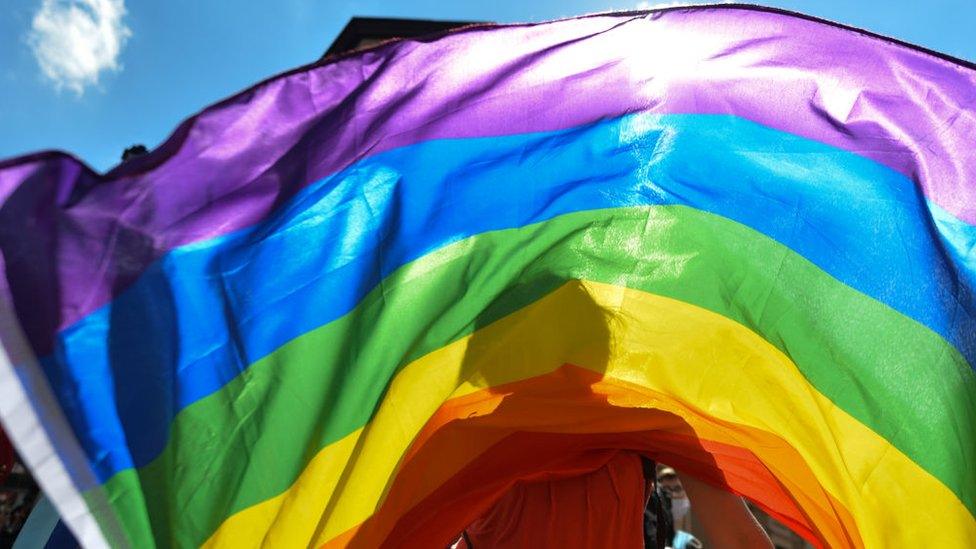
- Published28 June 2019
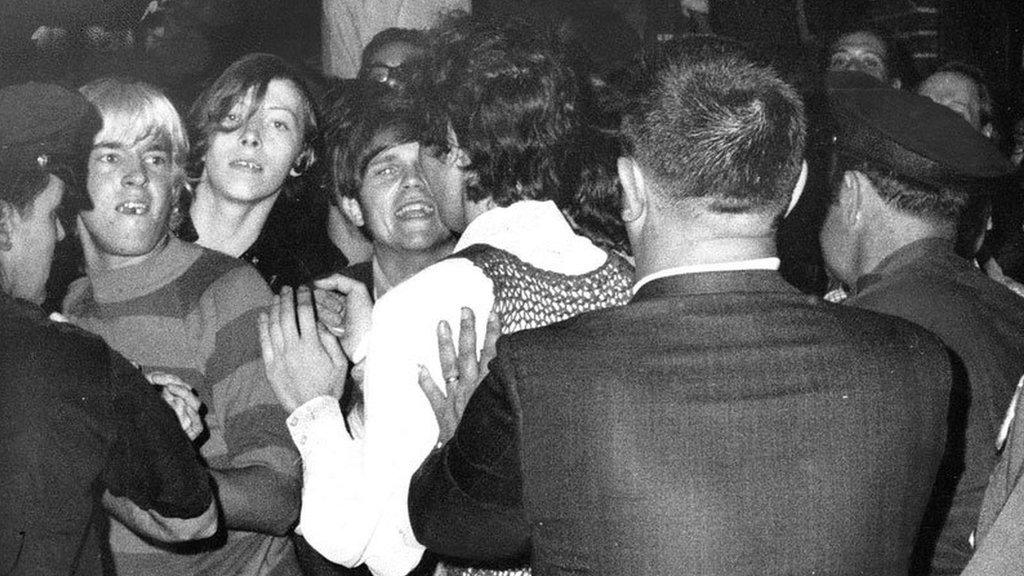
- Published19 March 2020
